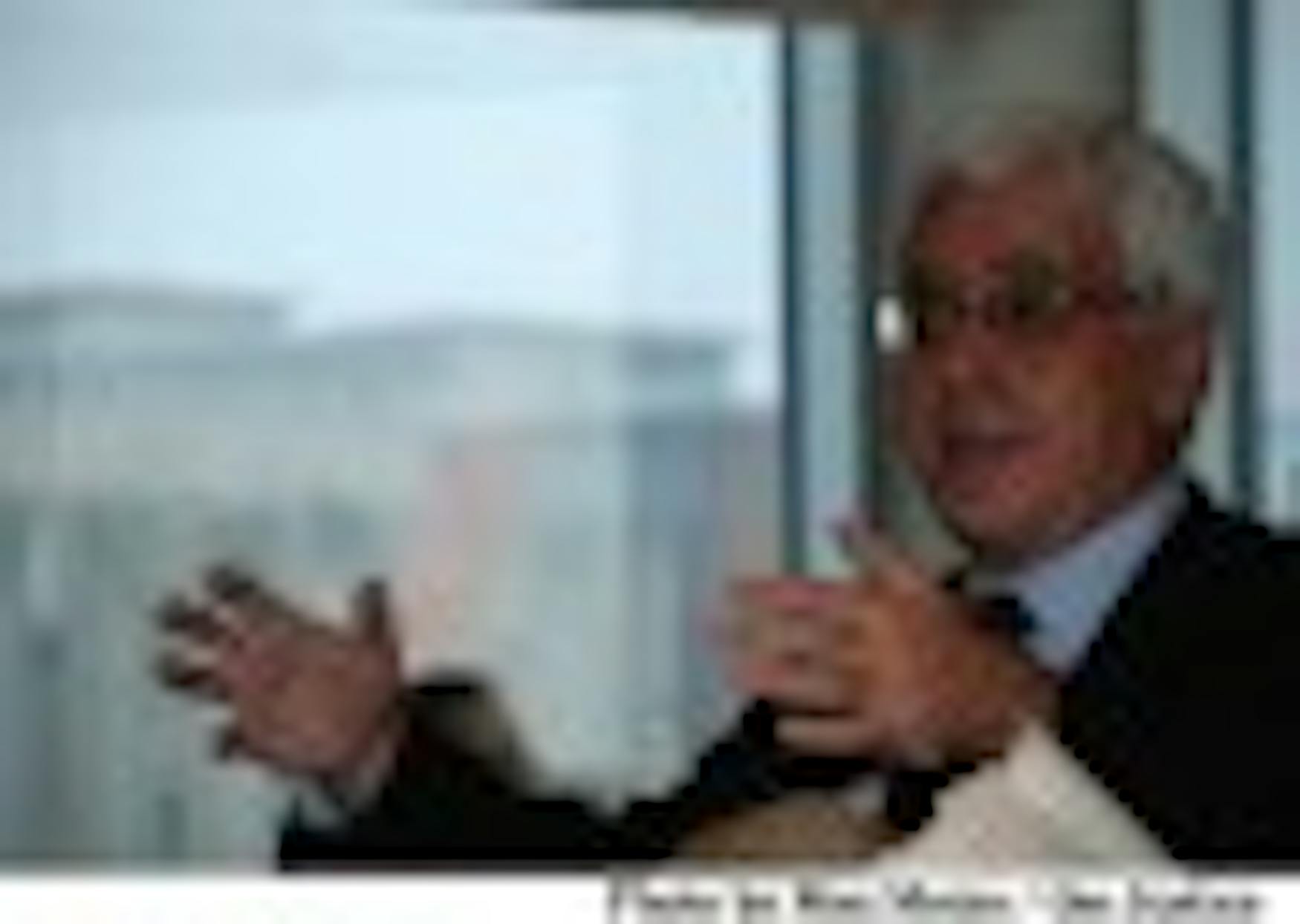Al-Quds President visits
When Al-Quds University President Sari Nusseibeh first visited Brandeis in 1997, a groundbreaking partnership between the two institutions was inspired. During Nusseibeh's return here last Thursday, he reflected on the struggles within his homeland and inner consciousness.The Al-Quds-Brandeis partnership was renewed during this visit.
Nusseibeh, who is also a philosophy professor at Al-Quds, the only Arab university in Jerusalem, discussed his latest book, Once upon a Country: a Palestinian Life, which came out this past Spring, during the second Meet the Author event of the semester last Thursday in the Shapiro Campus Center Multipurpose Room. The book is a memoir that weaves his autobiography with his account of 20th-century strife in his homeland, in the Palestinian territories.
"[The book is] one of the most important books about the area to come out in a while," said Dan Terris, director of the International Center for Ethics, Justice and Public Life, during his introduction of Nusseibeh. After the event he told the Justice, "[the book] could become an act of internal dialogue."
Although Reinharz and Nusseibeh first met during the week-long visit in 1997, the partnership didn't officially form until after a February 2006 meeting between the two in Jerusalem. The intiative has three main goals, according to the Brandeis Web site: to better the administration and infrastructure at Al Quds; to strengthen academics and offer more opportunities to faculty, students and staff at both institutions; and to educate the two campuses about the effects of cooperation, goodwill and understanding.
Brandeis hosted four second-year Master's students from the American Studies program at Al-Quds for two weeks in March 2006, and eight Brandeis undergraduates joined seven Al-Quds students on a trip to Turkey last August.
In his speech, Nusseibeh described three requirements that a proper rebellion against Israeli occupation must fulfill.
"It has to have the participation of the masses. . It has to have an articulated vision, such as disengaging from one country, to set a state and declare independence, . [and there has to be] a strong and distinct leadership." According to Nusseibeh, "When there is chaos it is easier to have an impact on the direction of a movement."
The Palestinian rebellion hasn't satisfied those criteria over the last five years, Nusseibeh explained.
"In the last five years, the violence has had none of these conditions . just disorder," he said. "I have resisted calling it an intifada, but instead simply the outbreak of violence." Intifada means uprising in Arabic, and refers to the use of Palestinian armed force against the Israeli occupation.
The book focuses on the broader strife Nusseibeh describes in the Palestinian territories, but it also draws heavily on his internal struggle about his identity and responsibility to himself and his country.
"I wonder if I did make the right choice," Nusseibeh said of his return home after studying in England and the United States. "I felt the need to go back and share my good fortune through education."
Nusseibeh also said that an open-minded academic perspective should be spread to the classroom.
"I wouldn't require learning about religions," he said in response to a question from a student about changes he would implement in the Palestinian educational system. "One should encourage the formation of human beliefs, and the development of an ability to learn."
As for the ongoing Arab-Israeli conflict, he said people must continue to work for peace. "We can't do everything at once; we shouldn't despair over doing everything," he said. "Things happen, but you have to make them happen.



Please note All comments are eligible for publication in The Justice.